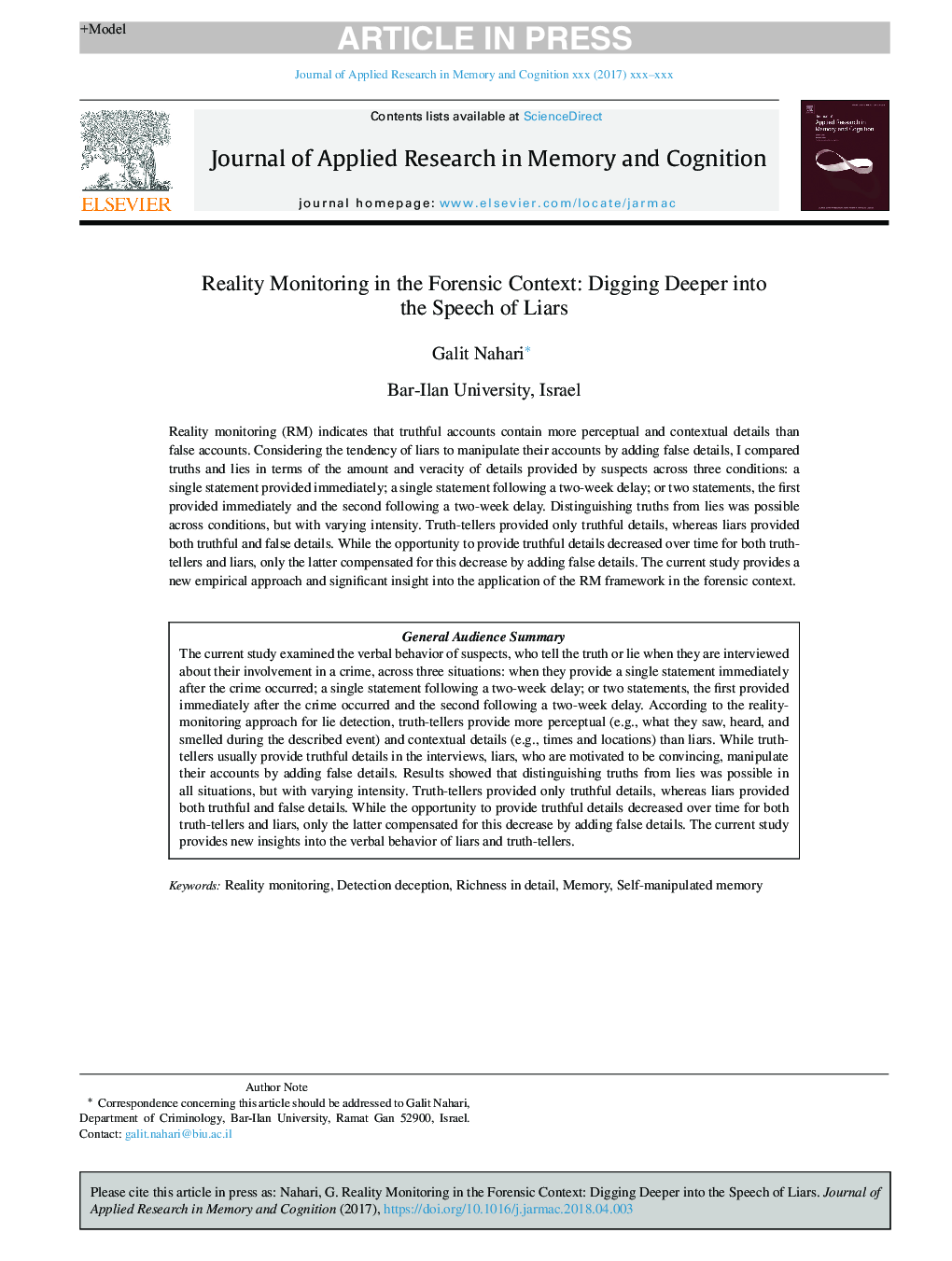| Article ID | Journal | Published Year | Pages | File Type |
|---|---|---|---|---|
| 10153260 | Journal of Applied Research in Memory and Cognition | 2018 | 9 Pages |
Abstract
Reality monitoring (RM) indicates that truthful accounts contain more perceptual and contextual details than false accounts. Considering the tendency of liars to manipulate their accounts by adding false details, I compared truths and lies in terms of the amount and veracity of details provided by suspects across three conditions: a single statement provided immediately; a single statement following a two-week delay; or two statements, the first provided immediately and the second following a two-week delay. Distinguishing truths from lies was possible across conditions, but with varying intensity. Truth-tellers provided only truthful details, whereas liars provided both truthful and false details. While the opportunity to provide truthful details decreased over time for both truth-tellers and liars, only the latter compensated for this decrease by adding false details. The current study provides a new empirical approach and significant insight into the application of the RM framework in the forensic context.
Keywords
Related Topics
Social Sciences and Humanities
Psychology
Applied Psychology
Authors
Galit Nahari,
